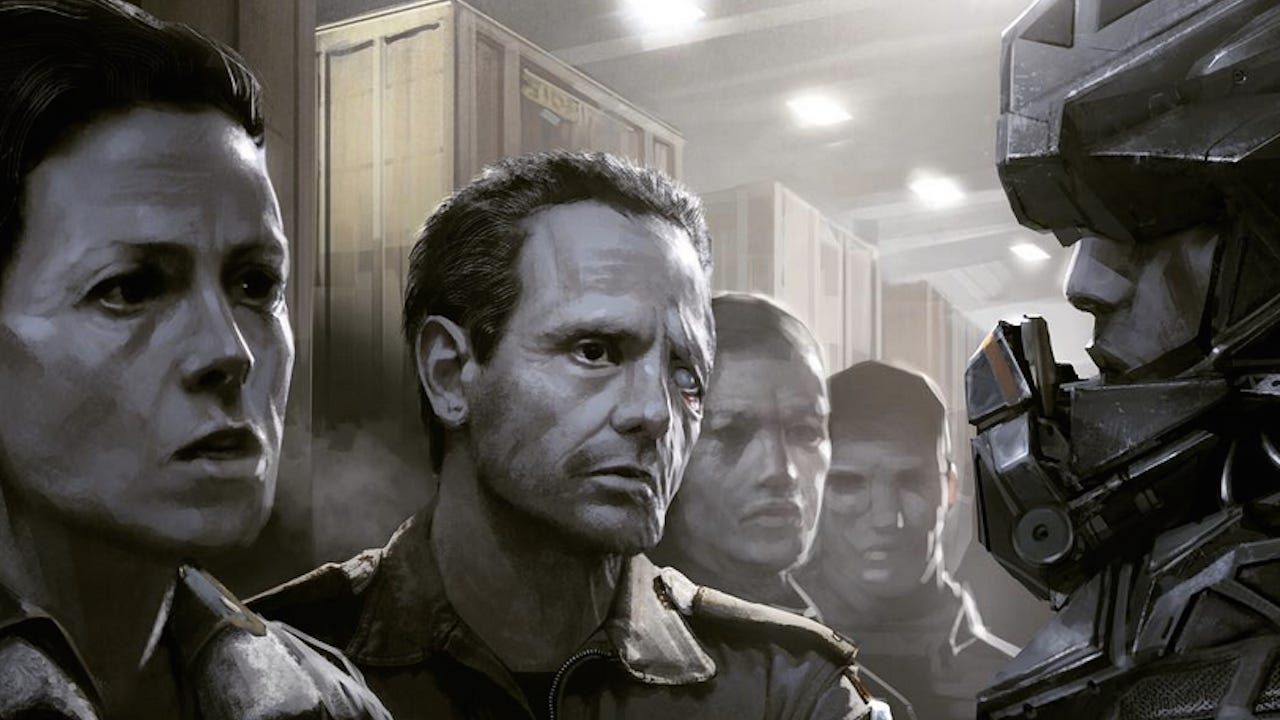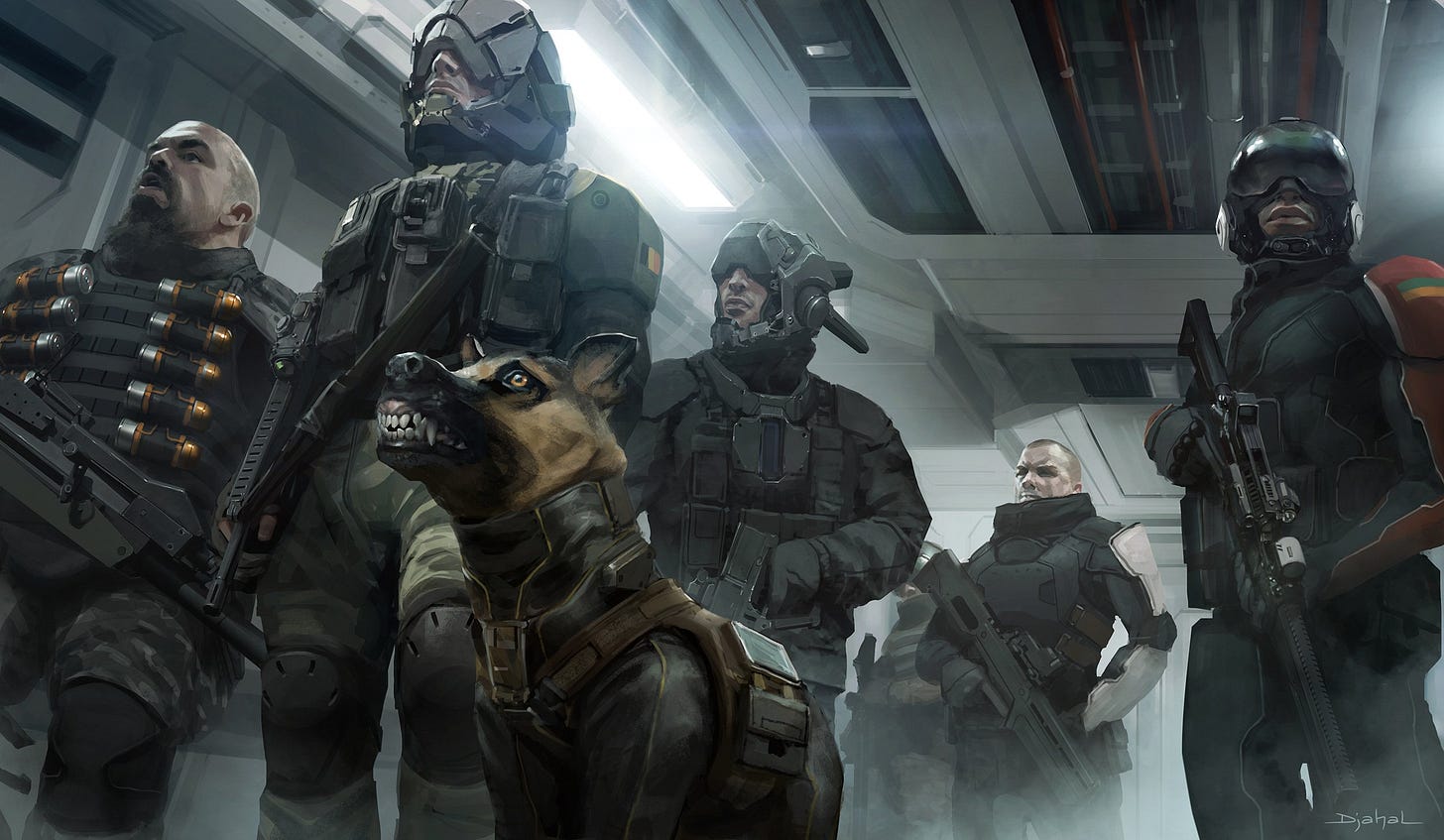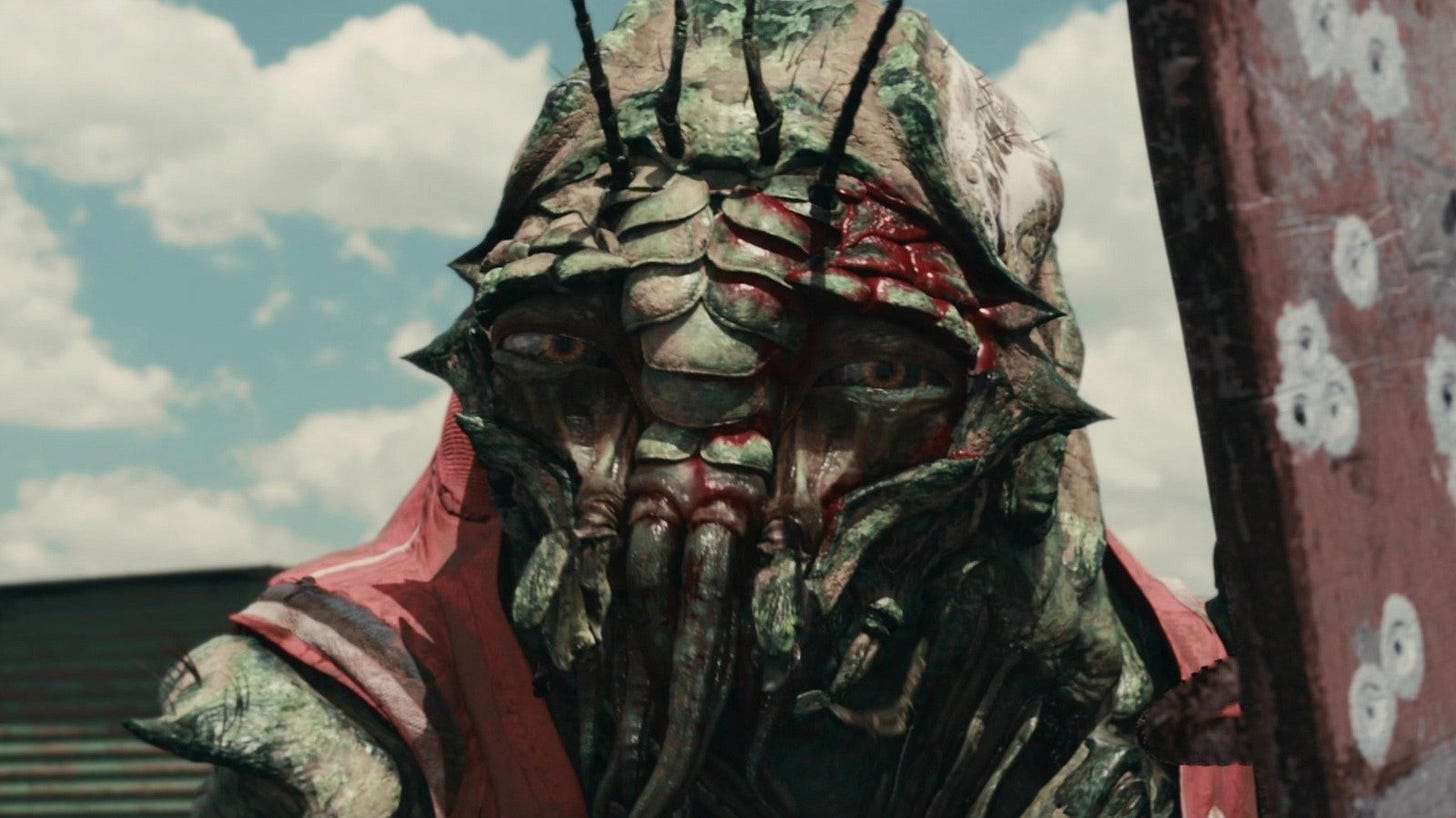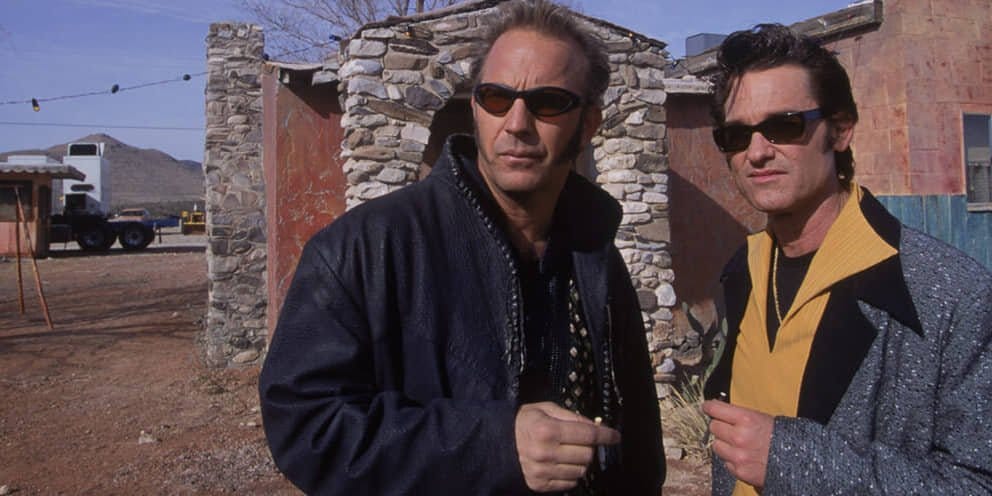Neill Blomkamp: A True Underdog of the Science Fiction Genre
With Gran Turismo out in theaters now, we are taking a closer look at what separates Neill Blomkamp from other directors. Spoiler: his style and tone is quite unlike anything in the science fiction genre.
The year is 2009 and a weird little sci-fi thriller releases wide about aliens on our planet being brutalized from a relatively unknown director. That film sparked so much controversy and discourse in the way we treat each other as human beings. It brought with it themes surrounding discrimination and human rights— and in the midst of that, was nominated for four academy awards including Best Picture, Best Visual Effects, Best Adapted Screenplay, and Best Film Editing. That little movie was District 9 from director Neill Blomkamp. With the massive critical and audience reception, Blomkamp became the hottest director in the sci-fi lane at that time. And, of course, we were all anticipating his next few films. You know, looking back on it now, it seems relatively unknown at that time that they wouldn't be as critically successful or even as well received by audiences.
His next two films were perceived to be a little misguided, and of course I'm talking about Elysium (2013) and Chappie (2015). But I think after District 9, audiences and critics were excited to have a new perspective in the science fiction genre. And even with the two “failures,” if you would even call them that, everyone was eagerly anticipating what was to come next. There were talks about Blomkamp directing Alien 5, the Ridley Scott property, which at that point was under a lot of scrutiny for not properly evolving in a direction that felt authentic to the original DNA. There was a lot of excitement for some new blood in the storytelling lane of the Alien franchise, especially with the original 1979 film Alien being one of the most iconic horror sci fi movies of that time; I would argue even of today.
The franchise was stagnant. There was no movement forward to evolve the IP into its full potential, especially as James Cameron greatly expanded the possibilities of the fictional world with the sequel to Ridley Scott's original, Aliens. It was going to take someone who could tell human stories in the vast sea of high-level science fiction concepts. If District 9 was any indication, that meant that Blomkamp was almost certainly the right pick for Alien 5 to move the story forward. And then...Chappie came along. Ridley Scott and the production team over at 20th Century Studios basically scurried away from offering Blomkamp any sort of deal to direct Alien 5 and unfortunately, that led to a lot of disappointment for people who absolutely adore that franchise, myself included.
We've gone several years since without any big feature film from director Neill Blomkamp—Demonic (2021) notwithstanding. Unfortunately, that has led to Blomkamp largely flying under the radar over the past several years, mainly creating short films and not even touching big feature tentpoles. And then we come to Gran Turismo, his latest feature film based on a true story, in theaters right now. Gran Turismo has been given a lot of grace and a lot of love from fans and critics, branding it a nice breath of fresh air, especially among the director's filmography. To understand why Blomkamp, even after flubs such as Chappie and Elysium, is getting a lot of attention with the latest release, we have to understand where the filmmaker originated.
Having been a professional animator and visual effects artist since he was 16, Director Neill Blomkamp survived the indignity of having his first studio film taken away from him by turning the independently financed sci-fi opus District 9 into a major box office and critical hit. Blomkamp was born on September 17th, 1979, in South Africa. He grew up amidst the social divisiveness and government approved minority white rule of apartheid, which had a profound and life changing influence on his later creative vision, even that for District 9. But his parents bought him a computer at a young age of 14, and that led him to experimenting with 3D animation, as well as practical effects and prosthetics. When he was just 16 years old, Blomkamp was hired by television producer Sharlto Copley to be an animator for the production company Deadtime. Two years later, his family relocated to Vancouver, British Columbia, where he studied film at Vancouver Film School. He earned some practical experience as a visual effects artist for the Embassy Visual Effects, as well as Rainmaker Digital Effects, serving as a lead animator on Kevin Costner and Kurt Russell's vehicle, 3,000 Miles to Graceland in 2001.
Having given Blomkamp his first job in the industry, Copley has been in several of Blomkamp's projects including Chappie, Elysium, and the lead in District 9. Blomkamp is an avid short film director. He spends a lot of his time, even in between feature filmmaking, working on short films—developing cool concepts and creative ways to tell stories; evident with his work through Oats Studios. One of the most lucrative shorts he put together was actually Halo Landfall, in which Microsoft and Bungie brought Peter Jackson and Blomkamp together to make a viral marketing campaign for Halo 3 that was a testbed of sorts for a full-blown Halo feature film. Of course, we have the TV show now, but at first it was garnered to be a feature length film. What makes Blomkamp unique is his visual presentation and ability to tell a tight-knit story through cinéma vérité, a much more intimate style of filmmaking than direct cinema. Both use live and synchronous sound, handheld cameras, lightweight equipment, and ultimately seek truth in the stories that they capture.
But, there's a difference between these two format that keeps them in separate categories, and that's that direct cinema often keeps the filmmaker absent from the knowledge of the actual viewer or audience. It's more of an invisible style of filmmaking where you don't really notice the technique at work a lot of the time. However, the cinéma vérité style inserts the filmmakers into the story itself. You can see it in shows like The Office or What We Do in the Shadows, which are made to look unscripted. Cinéma vérité embraces the shaky cam, and when you apply it to the genre of science fiction, everything feels a bit more tangible; a bit more real and in-your-face. That is why District 9 and the story of apartheid worked so well in capturing the humanity of the aliens in the film.
District 9 follows a massive starship in 1982 following an alien population nicknamed “the Prawns” who appear over Johannesburg, South Africa. 28 years later, the initial welcome by the human population has faded. Essentially they set up a refugee camp where the aliens are forced to live—much like a militarized ghetto, of sorts, called District 9, where they are confined and exploited in the squalor. Then in 2010, the munitions corporation, Multi National United, is contracted to forcibly evict the population with the help of an operative, played by Copley. In this operation, Wickus (Copley) is exposed to strange alien chemicals and must rely only on the help of his new Prawn friends. Notably, the tagline for the film is: “You are not welcome here,” and it speaks to the broader ideology and underlying themes in District 9 of embracing humanity.
Blomkamp's follow up feature film, Elysium, took place just four years later, starring Matt Damon, Jodie Foster, and again, Sharlto Copley. This time, the year is 2154 and the wealthy live on a man made space station while the rest of the population—the poor, more or less—reside on a desecrated Earth. Elysium dives into discussions on class and again on humanity as how we separate ourselves as a nation. Chappie came out two years following Elysium, which had a mixed critical and audience reception. Chappie, in addition to Copley, had Deb Patel and Hugh Jackman star, and it's set basically in a near future where the police force is patrolled by a mechanized unit. One police droid, Chappie, is stolen and given new programming in which he's able to finally think and feel for himself. Tonally, Chappie feels a bit more playful and a bit more childlike. Though its R rating still stands very, very strong, it's given a lighter touch. And while it attempts to explore the themes of humanity and separation, Chappie did not land with audiences in the way that District 9, or even Elysium did.
All of the subtle meta commentary that was found in District 9 was erased from the story, with SlashFilm writing [of Chappie], “The larger story is positively riddled with plot holes and any sense of subtlety seems to have fallen right through them.” And it was at that moment, with the quality of Blomkamp's films deteriorating right before our eyes, that people started to question whether he truly was the best science fiction up-and-comer working during that time. The film ultimately was the final nail in the coffin for Blomkamp's potential work on Alien 5. As recently as a year ago, producer Walter Hill offered up an update on the prospect of an Alien 5 ever being made speaking with The Hollywood Reporter. He said, “We took a shot at that a couple of years back with Sigourney, but that was back when Aliens was still at Fox. The people at Disney, who now control [the property], have expressed no interest in going down that road. I had an idea for a good story with the Ripley character, and Sigourney. But I do hope to see her in Venice.” Speaking with Joe Rogan recently, Blomkamp expressed discontent with how the reception to Chappie ultimately led to the dissolution of Alien 5.
He noted that Sigourney Weaver, who plays the lead character in the Alien franchise, Ripley, expressed so much interest in the script that was given to her, and that fans were undoubtedly excited. When the key concept art was dropped by Blomkamp and his team, showing a very Blomkamp-style Aliens film with popular characters of Hicks and Newt returning, everyone was on the edge of their seat in anticipation. And when you think of the cinéma vérité style being injected into the franchise, you can't help but get excited. It would have been a new look for the IP, and one that would have felt unequivocally fresh. But everyone inside and outside of the industry know, at this point, that the Blomkamp’s singular vision for Aliens has passed.




So where does Blomkamp step out of the darkness that he's been surrounded by for the past few years with Hollywood and audiences shunning him? Believe it or not, this is where Gran Turismo shifts in. Perhaps it's because it's based on a true story, but the the documentary-style that Blomkamp is known for in the science fiction genre translates beautifully across to a biopic, of sorts. One could argue that Gran Turismo is a lot more dramatized than a typical biopic would be, however that documentary style filmmaking lends itself to telling the most authentic story for the characters in the film, especially for Jann Mardenborough. The movie has been relatively successful in the review circuits for its brisk action and feel-good, underdog drama inclinations.
Starring the likes of Archie Madekwe, David Harbour, Orlando Bloom, and Darren Barnett, with Djimon Hounsou playing Jann’s father in the story. Lucas Trevor of the Washington Post writes that, “Gran Turismo is flawed, but ultimately impressive in size and sound. It is, when all is said and done, a pretty good time at the movies, especially if you're going for a racing story.” It's predictable, yet infectious. Charming, if a little cheesy at times. With Zack Snyder's Rebel Moon getting so much attention in the last few days, I can't help but feel there are several big science fiction franchises that Blomkamp could tackle and revive that cinéma vérité flavor in the genre of science fiction. And being just a little over 40, Blomkamp has so much time. to get back to work in the genre that he loves most.
Gran Turismo may not be the best underdog racing movie. Though, you can't deny that Blomkamp has a unflinching visual language that is impressive, both in terms of the genre films and short-form content, but for making something like a biopic—as evident by Gran Turismo. Much like the underlying themes in Gran Turismo, there's somewhat of an underdog story here; someone who burst onto the scene with such an important and critically acclaimed film, perhaps one of the greatest films of the 21st century thus far. After taking sizable swings creatively and nabbing four Oscar nominations, it’s impossible to ignore the growing potential that the filmmaker wields to deliver a revitalization of the sci-fi genre in the coming years.
Everyone loves a good comeback story, and Gran Turismo might just be what Blomkamp needs to take another step forward into greatness.






